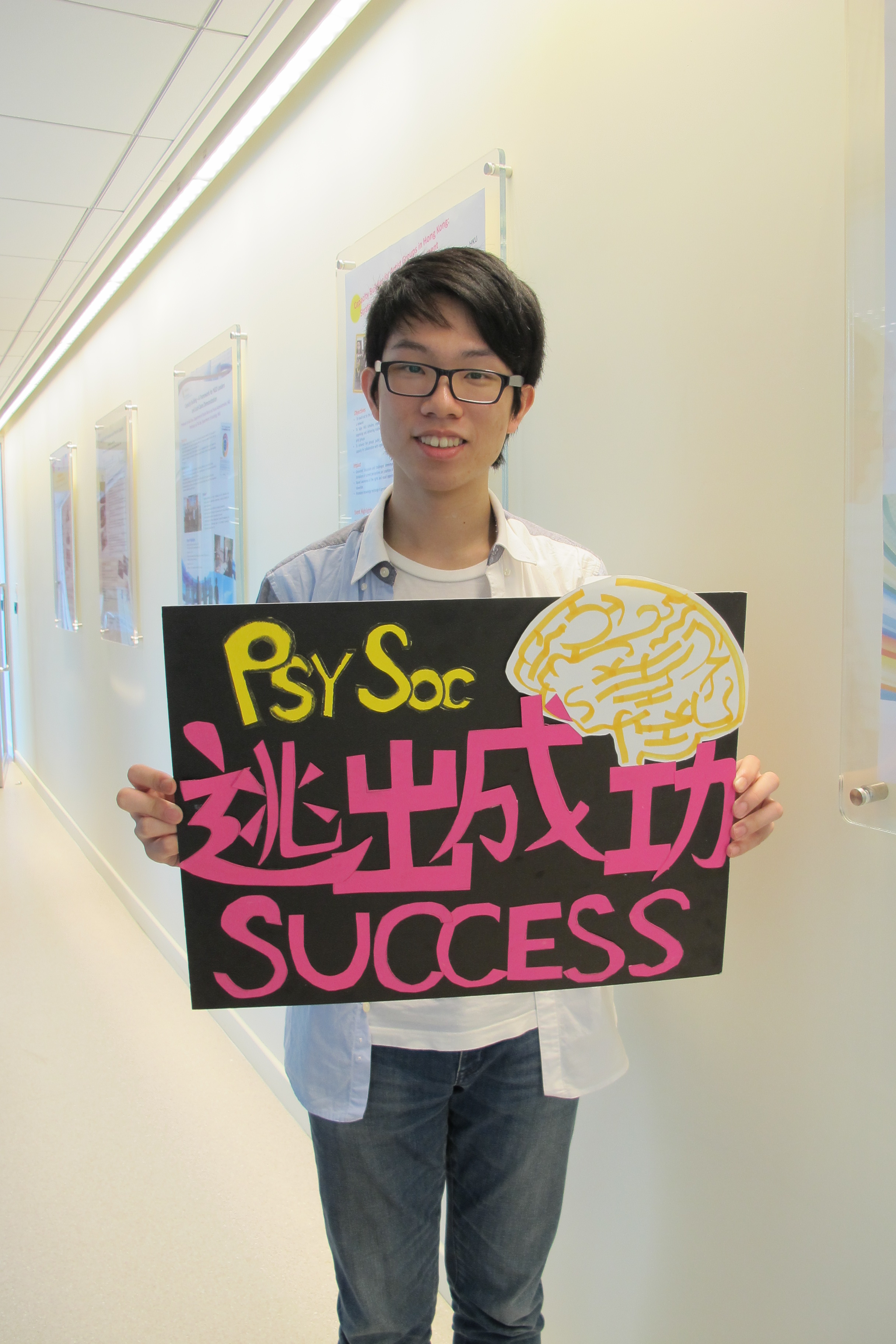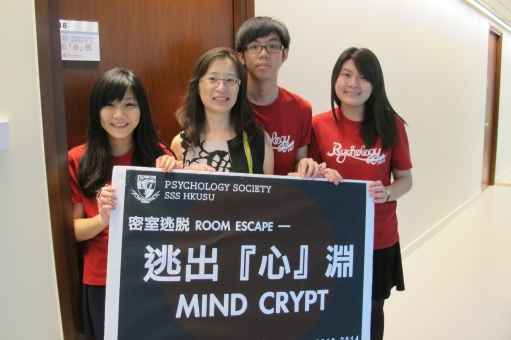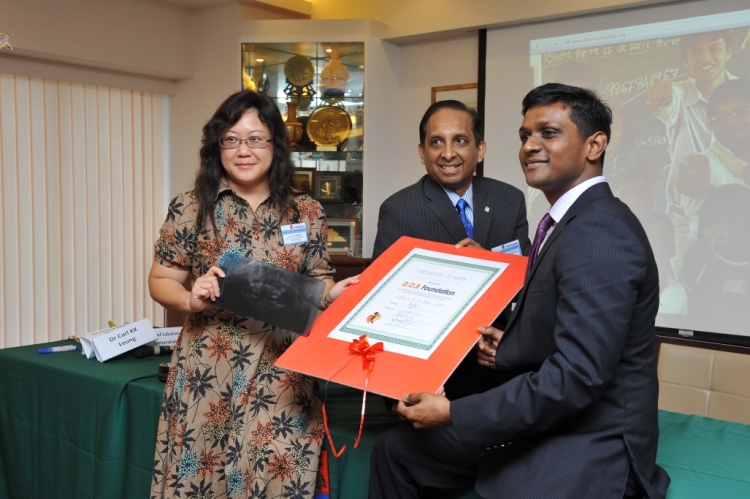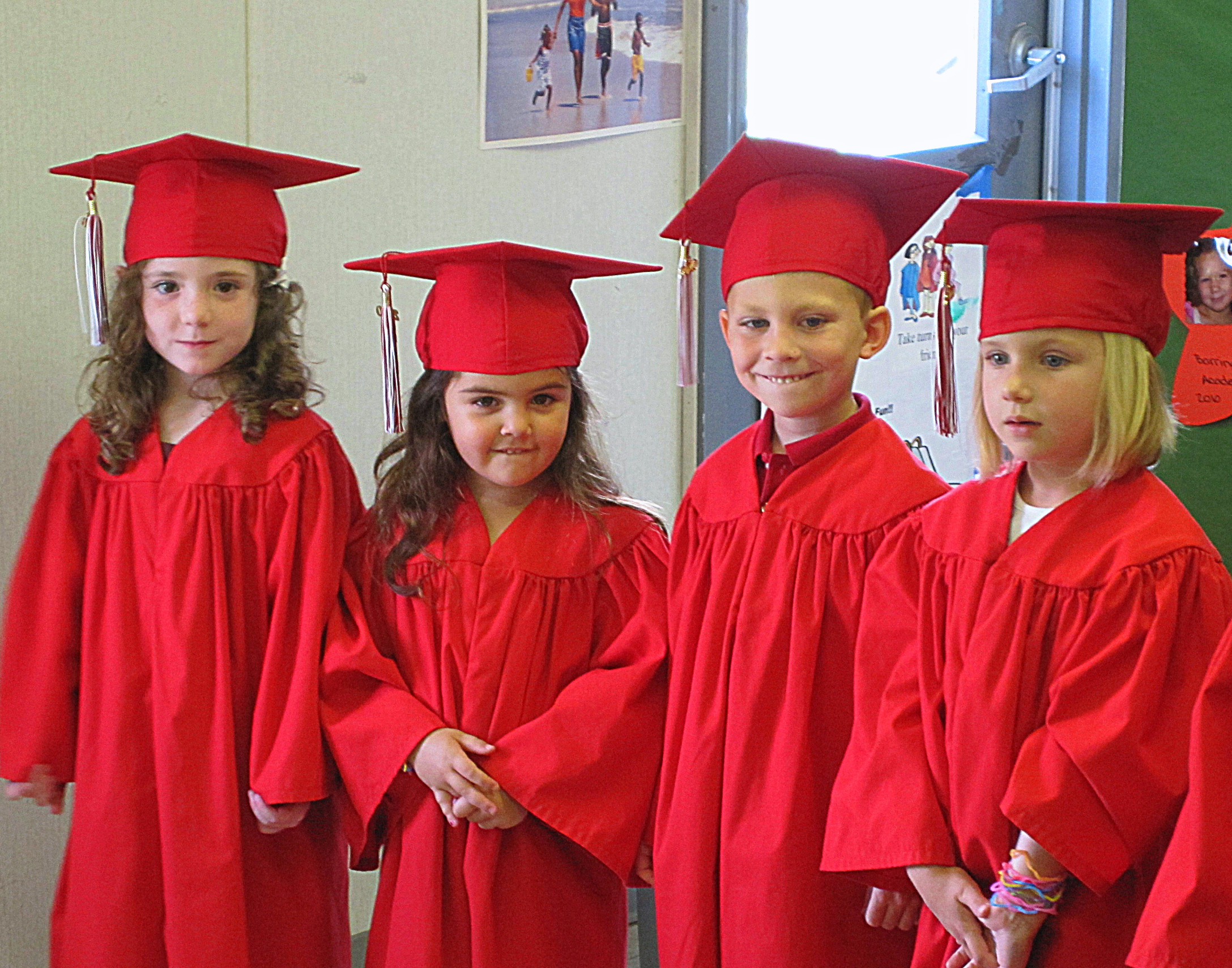To promote psychology to the public, Psychology Society, Department of Psychology and the Faculty of Social Sciences of the University of Hong Kong (HKU) invite the public to join a free journey to explore the wonderland of psychology (PsyJourney) from late-March to mid-April.
“Mind Crypt” is the first event of the PsyJourney series. It is a pioneering combination of psychological theories with the popular Room Escape game. This game aims to help participants to realize our thinking is often distorted and confined by various cognitive biases and logical fallacies.
Participants, trapped in a locked room, will need to solve multiple tasks to successfully decrypt the code and escape the room within 45 minutes. The process requires participants to collaborate in a team of 4-6 people, and think beyond the surface and confinement of the mind. The game is conducted in both Chinese and English. After the game, a short debriefing session on relevant psychological theories will be conducted by the committee members of the Psychology Student Society. No better way to learn with fun. “Mind Crypt” is free of charge and is open to the public. Participants must register as a group of 4 – 6 people.
The background of this Room Escape is an abandoned scientific laboratory. In this pitch-black laboratory, each team has to use the equipment and materials given and try to unlock 5 boxes. Team members should be sensitively observant and innovative in order to decrypt various confusing codes in the game and escape from the room.
Locked in a room for 45 minutes, participants usually do not feel the passage of time. This is because our time perception is deeply influenced by our attention level. The lighting effect, music, props and sudden loud noises in the room are all carefully designed based on the principle of “generalization”, by which we associated such elements with horror and anxiety when we experienced them in the past. Lastly, one of the most common cognitive biases is “functional fixedness”, with which we often have a tendency to use objects in a particular way. Participants should have a broad perspective and think flexibly in order to escape successfully.

Due to enthusiastic response, the registration for the sessions to be held from March 28 to April 7 is full. We are pleased to present additional sessions to the public on a first-come-first-served basis with the details as below:
Date:April 8, 10, 11, 2014 (16:00 – 21:00)
April 13,2014 (16:00 – 21:00)
Duration of each session: 1 hour
*Each session can accommodate 2 teams of 4 to 6 people.
Venue:Room 11.17 & 11.18, 11/F, The Jockey Club Tower, Centennial Campus, The University of Hong Kong
Registration:http://www.psysoc.hkusu.hku.hk/
https://www.facebook.com/PsySocSSSHKUSU
A workshop and a public talk are also scheduled in April to unveil the secret of “Flawed mind”. For further details, please refer to the above official website and Facebook page.
Additional Activity
1) Workshop – Mind Craft
Optical illusions have been a very popular topic on the Internet. Over time, they have only become more popular. Proofs of “optical illusion” being something that people are interested can range from the famous “Rabbit-duck” illusion being viral on the Internet to the art piece in the Trickeye Museum Korea. There are even illusions on the Internet, claiming to be able to estimate a person’s IQ. What is an optical illusion really? Have you ever thought of making your own illusions, or even be a part of an illusion? “Mind Craft” is the second function in the “Chronicles of the Mind” series, aiming to further deepen people’s understanding towards the blind spots of the mind. The 2-hour workshop allows you to immerge in the world of illusions. Participants will be able to understanding about how illusions are formed and to craft their own illusions under the guidance of Dr. TSENG Chia-huei in the University of Hong Kong. Of course, they would be able to bring their “mind craft” home as a remembrance.
Event details:
Topic: Unfold the Secret of Illusion
Date: 9/4/2014 (Wednesday)
Time: 7pm – 9pm
Venue: Lecture Room 7, Library Extension, The University of Hong Kong

2) Public Lecture – Flawed Mind
Are you always reluctant to change your multiple choice answers? If yes, then you may be under the effect of selective attention. Selective attention is a kind of cognitive bias, which is one of our many ‘flaws’ of thinking. When we are selectively concentrating to instances which we have got the answer wrong after modifying our answers, ignoring all changes which led a correct answer, we naturally believed that the probability of getting wrong after modifying an answer is high. Many of these cognitive biases or flaws have created our tendencies to think in specific ways, allowing irrational decisions and leading to false beliefs. This year, with the theme “flawed mind”, the talk hope to discover the flaws of thinking, and reveals its effects to our daily life. Despite applications to daily life, when these tendencies and irrationalities also result distorted thinking, and therefore mental illnesses, professionals will also discuss ways in correcting these problematic thinking, otherwise called cognitive therapy. After all, the talk hopes to bring awareness to these flaws of thinking, thereby correcting or improving our ways of thinking.
Event details:
Topic: Flawed Mind
Date: 12/4/2014 (Saturday)
Time: 2:30pm – 5:30pm
Venue: Lecture Room 726, Knowles Building, The University of Hong Kong



















